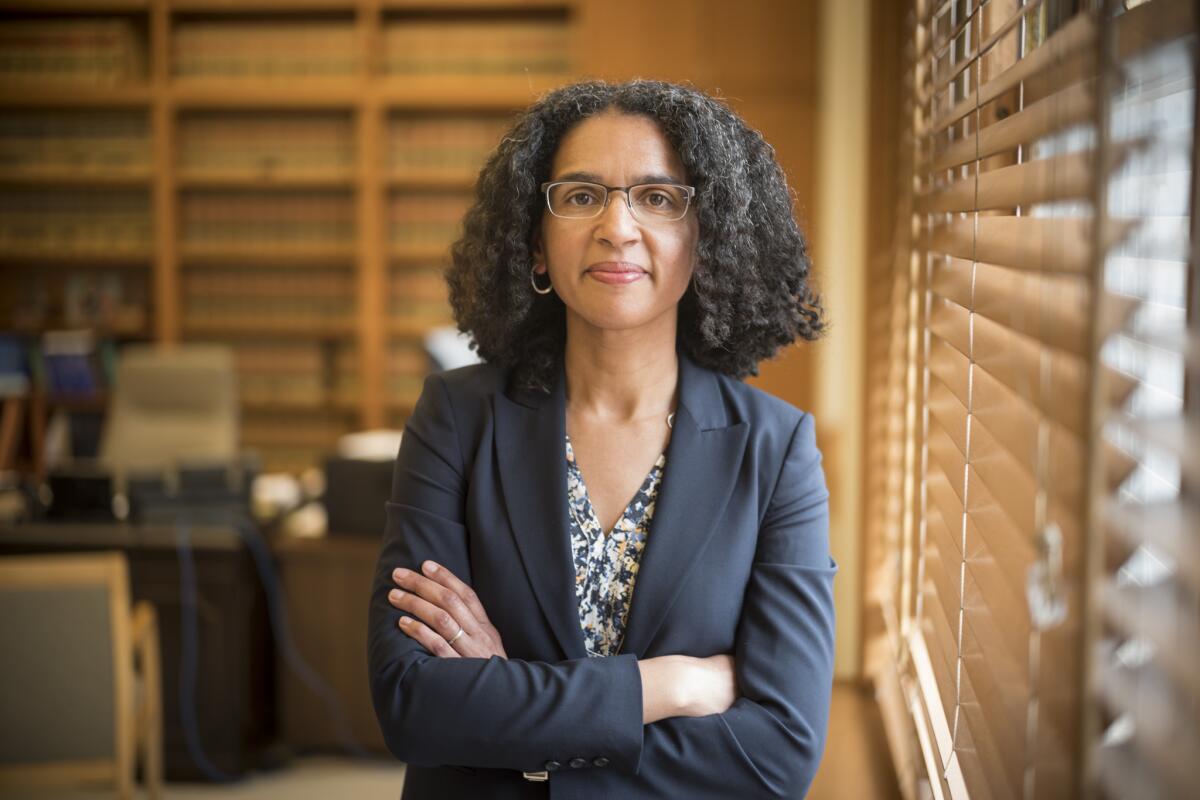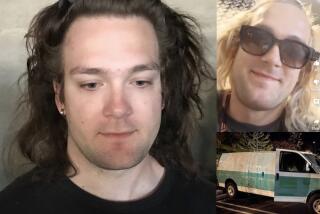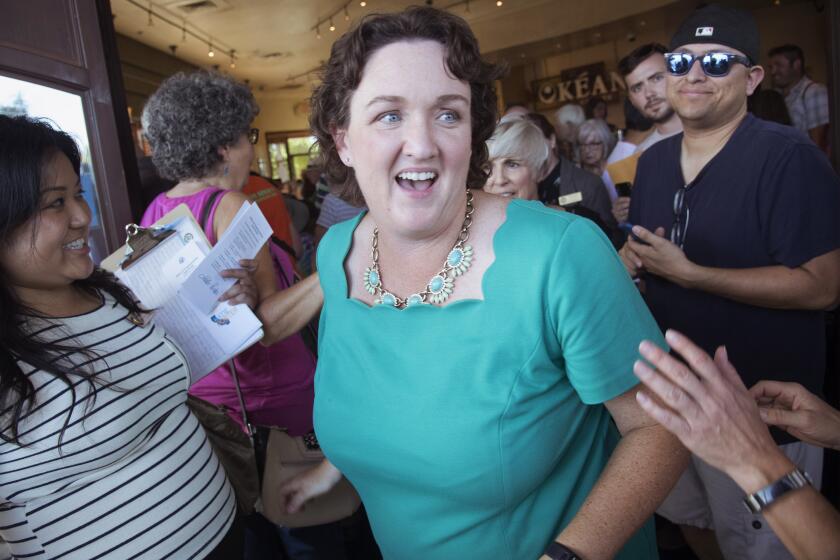White supremacist’s death sentence overturned because of prosecution’s focus on beliefs

- Share via
SAN FRANCISCO — The California Supreme Court unanimously overturned the death sentence of a San Diego man Thursday, ruling that the prosecution improperly focused on the defendant’s racist beliefs.
In a decision written by Justice Leondra R. Kruger, the state high court said the prosecutor made inflammatory arguments about the defendant’s racist tattoos and white supremacist beliefs “for the very sake of highlighting their offensiveness” rather than for a legitimate purpose connected to the crime.
The 1st Amendment does not permit the prosecution to ask a jury to return a particular verdict because the defendant holds offensive beliefs, the court said. Instead, there must be a nexus to the crime or the defendant’s propensity for violence.
The ruling means that Jeffrey Scott Young, convicted of the two first-degree murders, an attempted murder and a carjacking, must be given a new trial on whether he should be condemned to death or his sentence will be reduced to life without possibility of parole.
The killings occurred during a 1999 robbery of a Five Star Park, Shuttle & Fly parking lot near San Diego International Airport.
An employee of the parking lot planned the robbery, and Young and two accomplices committed it.
During closing arguments at the penalty phase of the trial, the San Diego prosecutor focused on the fact that Young wore racist tattoos and displayed Nazi symbols. She said he also conveyed his racist beliefs to his children.
Kruger said a defendant’s beliefs, however obnoxious, may not be taken into account by a sentencing jury.
“Evidence of a defendant’s racist beliefs is not relevant if offered merely to show the moral reprehensibility of the beliefs themselves,” Kruger wrote.
She said the trial judge should have not have allowed the arguments.
“This case included the tragic circumstances of the robbery murders, which involved the needless close-range shooting of two defenseless employees who appeared to be complying with the robbers’ demands,” and other incriminating evidence, Kruger wrote.
“But for whatever reason, the prosecution chose not to rely on this evidence alone,” she added.
Instead, the prosecutor put seven different witnesses on the stand to testify about Young’s racism and focused on it in her closing arguments even though the crimes weren’t race-related.
“The prosecutor openly and repeatedly invited the jury to do precisely what the law does not allow: to weigh the offensive and reprehensible nature of defendant’s abstract beliefs in determining whether to impose the death penalty,” Kruger wrote.
Young was arrested three years after the crime. He was convicted of shooting and killing Teresa Perez and Jack Reynolds, two employees of the parking lot, shooting at bystander Daniel Maman while fleeing and stealing the car of another bystander, Jim Gagarin.
More to Read
Sign up for Essential California
The most important California stories and recommendations in your inbox every morning.
You may occasionally receive promotional content from the Los Angeles Times.











